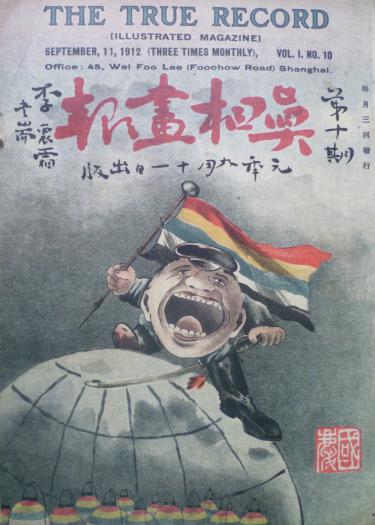Centre for Asian and Transcultural Studies The Sun that Never Sets? Rethinking the End of Time in Natural, Religious, Political Scenarios
- Termin in der Vergangenheit
- Donnerstag, 23. Januar 2025, 14:30 - 16:30 Uhr
- Centre for Asian and Transcultural Studies (CATS), 010.01.05 (CATS Auditorium), Voßstraße 2, 69115 Heidelberg
- Prof. Dr Barbara Mittler, Universität Heidelberg, Centre for Asian and Transcultural Studies
At the beginning of the twentieth century, Chinese artists and intellectuals noticed that China was sinking into deep darkness – the end of time, apocalypse. Faced with the country’s weakness, which was manifested in losses in the opium wars and finally, even against its small neighbor, Japan, writers, poets and cartoonists were reflecting on the best way to awaken China, to revive it, to bring it back to life and light by coming out of the darkness of the night – a revelation. One character who promised to bring back the light was Mao Zedong. During his lifetime, he was hailed as “The sun that never sets 永远不落的太阳”, an epithet that continues to be evoked to this day, both in a positive and negative sense – it has become one of the most important artistic tropes in the sinophone worlds. In her work Barbara Mittler considers the legacy of this trope in artistic discourses during the long Chinese 20th century – musical, literary and visual (such as the image by Fang Lijun above), popular and elitist – in an attempt to understand the power of the Maoist specter in determining the making of Chinese cultural heritage.

Adresse
Centre for Asian and Transcultural Studies (CATS)
010.01.05 (CATS Auditorium)
Voßstraße 2
69115 HeidelbergVeranstalter
Veranstaltungstyp
Veranstaltungsreihe
Vortrag
Alle Termine der Veranstaltung 'Apocalypse Now. Time, Historicity and Worlds After'
Lecture Series
While periodization — the partition of time into segments with a specific beginning and end — is integral to historical method, it cannot be dissociated from a wider reflection on a key issue: the relation between emic time (time as perceived by historical actors) and etic time (time as established by the scholar’s historical narrative). The relation between emic and etic times is an essential methodological question within human, social, and even natural sciences. This lecture series looks at this this question through a particular lens: the “end of times” or “apocalypses.” How do historical actors perceive it? What happens to historiographical narratives when actors talk about the future as the “end” of time? How has such a vision of the future shaped narratives and periodization schemes?
By focusing on “ends of times” and “apocalypse”, the tensions between time, temporalities and time horizons are to be discussed, both methodologically and empirically, in specific contexts. The three main areas are: 1) political history — the history of revolutions; 2) religious history — the history of last judgements and revelations; and 3) natural history — the history of pandemics, cataclysms and disasters. The first block (political history) will discuss the link between revolution and the end of time, starting with revolutions at the turn of the eighteenth and nineteenth centuries, including the Russian and Chinese revolutions. The second block (religious history) will consider perceptions of the end of time within some of the main religions, considering different takes on apocalyptic revelations, universal floods, millenarianisms and messianic movements. Finally, the third block (natural history) will discuss natural disasters and epidemics, and will feature the controversies over geological eras (such as the Anthropocene) and collapsology.